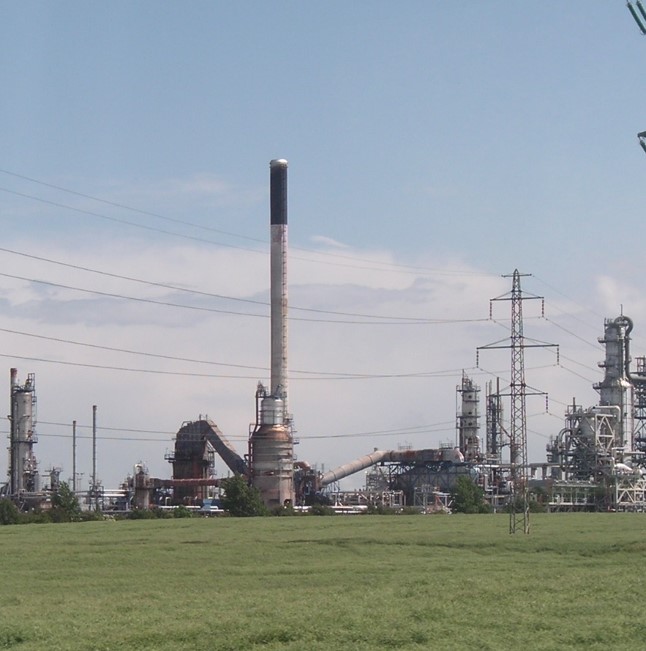[quarter]

[/quarter][half]
Welcome to Thematic Working Group 5c
Circular Economy
The purpose of this working group is to promote a dialogue between academics, policy makers and practitioners with an interest in exploring aspects of the social, technical, economic and environmental issues relating to resource management.
Forthcoming Book: International Perspectives on Industrial Ecology, Edited by Deutz, P, Lyons D, and Jun Bi. Edward Elgar Publications
[/half][quarter]
Working Group Chairs
Dr. Pauline Deutz
p.deutz@hull.ac.uk
Dr. Donald Lyons
d.lyons@ucc.ie
Dr. Olawale Olayide
waleolayide@yahoo.com
Dr. Qiaozhi Wang
wangqiaozhi@wust.edu.cn
[/quarter]
[three_quarters]
State-of-Art review
Efficient management of resources is a key issue for societies at all levels of development. Developed countries have made great progress in recent years towards the recovery of value from waste and effective management of disposal facilities. Low to medium income countries, however, face a critical combination of rapid urbanisation, industrialisation and population growth to compound the challenges of accomplishing technological change. Thus potentially valuable resources are discarded and serious pollution issues remain to be addressed.
Academics and policy makers alike have been drawn to the principles of industrial ecology in as a means to devise what has been termed a ‘circular economy’. The idea of a circular economy is that used resources remain in the economic system, rather than being disposed of. This implies recovery of material/energy from all stages of production, distribution and consumption. Industrial ecology holds that industrial society would be rendered less harmful to the environment if it drew on lessons from nature. For example, designing products and processes to minimise the full life cycle social/environmental impact; promoting the closing of material ‘loops’ in production; reducing the potential toxicity of waste by materials substitution. Industrial symbiosis is an element of industrial ecology involving the exchange of unwanted materials/water/energy between organisations. A fundamental contention of industrial ecology is that resource saving initiatives of this nature also bring economic savings to companies. The development of industrial symbiosis networks, or industrial ecosystems, has been seen as an economic development tool. However, the achievement of economic benefit can be elusive and the implementation of IE has been problematic.
With this theme, we are keen to continue the lively debate at previous ISDRS conferences which has resulted in a number of journal special issues and individual publications addressing a wide variety of issues related to resource management and in particular the application of industrial ecology and the circular economy. Numerous people have been involved in co-chairing and participating in these sessions; we look forward to continuing these productive and immensely enjoyable collaborations. We warmly invite participation from newcomers interested in joining, critiquing or presenting alternative perspectives on these debates. Theoretical, empirical or modelling approaches are welcome, with developed, developing or emerging economy perspectives.
Areas of interest might include, but are not limited to:
- Industrial symbiosis and eco-industrial networking
- Social network analysis
- Policy approaches to the circular economy
- Material flows, input-output analysis
- Methods and methodologies of industrial ecology
- Sustainable resource management
- Waste management in developing countries
- Recycling e.g., cost benefit, life cycle analysis
[/three_quarters][quarter]
Call for Papers
Next Conference
For more information:
ISDRS Conference
This theme will support the following tracks at the upcoming conference:
5e. Industrial Ecology: innovation for the next generation
Track chair: Pauline Deutz & Damien Giurco
Recent articles
Send in articles
Please send in relevant articles to the theme chairs.
Deutz P. and Ioppolo G. 2015
From Theory to Practice: Enhancing the Potential Policy Impact of Industrial Ecology, Sustainability 7, 2259-2273; doi:10.3390/su7022259
[/quarter]
[three_quarters]
Past conference sessions and journal special issues
2005 Helsinki: Industrial Ecology and Regional Development Session
(Deutz, Lyons, Gibbs and Jackson)
Deutz, P., Lyons, D., Gibbs, D. and Jackson, T. (2007) Editorial to double special issue of Progress in Industrial Ecology: Industrial ecology and regional development, v. 4 (3/4) p. 155-163.
2006 Hong Kong: Industrial symbiosis, eco-industrial parks and eco-industrial networking
Deutz, P. and Lyons, D.I. (2008) Editorial: industrial symbiosis – An environmental perspective on regional development. Regional Studies, 42 (10) 1295-1298.
2008 New Delhi: Regional Sustainable Development
(Lyons and Deutz)
Lyons D and Deutz P. 2010. Regional sustainable development: Making development work in politically contingent space. Sustainable Development 18 183-186.
2009 Utrecht
Deutz, Randall, Lyons and Agarwal
2010 Hong Kong
Industrial symbiosis, eco‐industrial parks and eco‐industrial networking and regional sustainability
Abhishek Agarwal, Jaspal Marwah, Geng Yong and Yong Un Ban; Baumgartner and Korhonen
Lombardi, D.R, Lyons, Donald I, Shi, Han; Agarwal, A. 2012, Industrial Symbiosis. Journal of Industrial Ecology. 16 (1) Pages: 2-7.
International perspectives on Industrial Ecology and the Circular Economy
(Deutz and Lyons)
Papers from this session are being edited for a book to be published by Edward Elgar.
2011 New York: Material Cycles
(Deutz and Lyons)
2012 Hull: Regional sustainability: economic development and industrial symbiosis
(Lyons and Boons)
2013 Stellenbosch: Innovation, value chains and sustainable production and consumption
(Diaz Lopez, Hamann, Jansson and Lyons)
2014 Trondheim, Norway, Circular economy tracks (Deutz and Lyons)
Report on 2014 track
[/three_quarters]